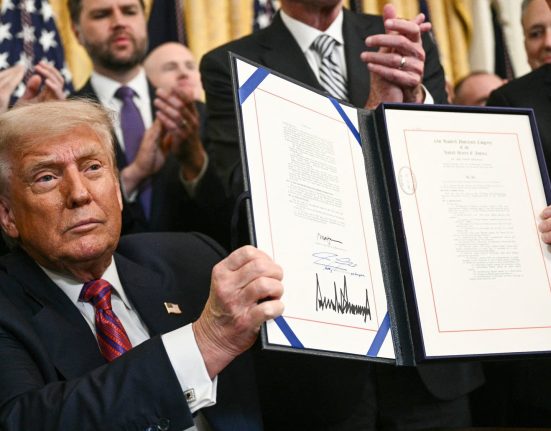Firms including crypto payments group Ripple, stablecoin company Circle, and custodian BitGo have applied for national trust bank charters that would allow them to offer select banking services
read more
Cryptocurrency companies are accelerating efforts to enter traditional banking in the United States, capitalising on what they see as a more favourable regulatory climate under President Donald Trump and seeking deeper integration into the financial system.
Firms including crypto payments group Ripple, stablecoin company Circle, and custodian BitGo have applied for national trust bank charters that would allow them to offer select banking services. Crypto exchange Kraken plans to launch bank cards by the end of the month.
“It’s a natural convergence,” Arjun Sethi,
Financial Times quoted co-chief executive of Kraken noting that the company plans to release debit and credit cards “by roughly the end of the month”.
The move signals a broadening of ambitions by crypto companies that have traditionally focused on digital asset services. Executives say confidence has grown under the Trump administration, which they view as open to digital assets, unlike former president Joe Biden, whose administration was perceived as hostile to the industry.
New York-based Circle said securing a national bank trust charter from the Office of the Comptroller of the Currency (OCC), the federal banking regulator, would be “a meaningful step” in bringing digital assets into the mainstream financial system. Anchorage Digital is currently the only crypto company holding a national bank charter.
“It’s . . . a 180 from where a lot of these crypto companies started, saying ‘we don’t need banks, we don’t need laws, we’re above it all’,” said Max Bonici, partner at law firm Davis Wright Tremaine. “Now they’re saying ‘regulate us’.”
National trust banks are authorised to hold assets and process payments but cannot make loans or accept direct customer deposits. The status allows firms to bypass the need for state-by-state licensing and provides improved access to the financial system.
The expansion comes as Washington debates new stablecoin legislation, aimed at regulating the tokens more closely and tying them to traditional financial structures.
“It really does open up the US financial markets to basically allow for stablecoins,” said Adam Chernichaw, partner at Pillsbury.
Stablecoins are digital assets pegged to national currencies like the dollar. They are used by traders to move between fiat and crypto markets, and increasingly for cross-border payments. The Trump administration and his cabinet have voiced strong support for stablecoins.
The proposed Genius Act would impose tighter controls, linking stablecoins to US Treasuries and allowing only regulated banks and certain OCC-licensed entities to issue them.
Brad Garlinghouse, chief executive of Ripple, said the company has also applied for a master account at the Federal Reserve, which would permit it to hold stablecoin reserves directly with the central bank.
Digital banking and crypto are converging, with fintech companies seeking to harness the rapid growth of crypto assets to attract US customers.
Retail brokerage Robinhood, which earned more than half of its transaction revenue from crypto last year, plans to introduce banking services this autumn.
“We should be able to help you with all of your financial needs,” said chief executive Vlad Tenev. “So your taxes, your estate planning, you don’t have to worry about moving money.”
London-based neobank Revolut, which generates significant revenue from crypto trading, has long-term ambitions for a US banking licence. Klarna chief executive Sebastian Siemiatkowski also plans to transform the consumer lender into a crypto-focused company.
Major banks such as Bank of America are also exploring stablecoin issuance, pending finalisation of US regulations.
“This administration has indicated that they’d be open to charter applications in a way that the prior administration was not,” said David Portilla, a partner at Davis Polk specialising in financial services.
However, not all crypto firms expanding into traditional banking are seeking charters. Kraken, which holds a banking licence in Wyoming, is launching its new app without applying for a national trust or master account.
“We don’t want to be the bank that offers a mortgage. We want to just partner with the best folks that can provide them,” said Sethi.







